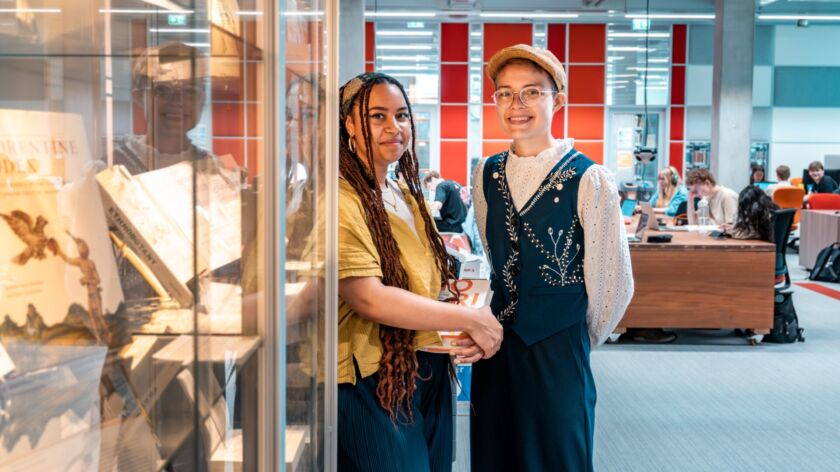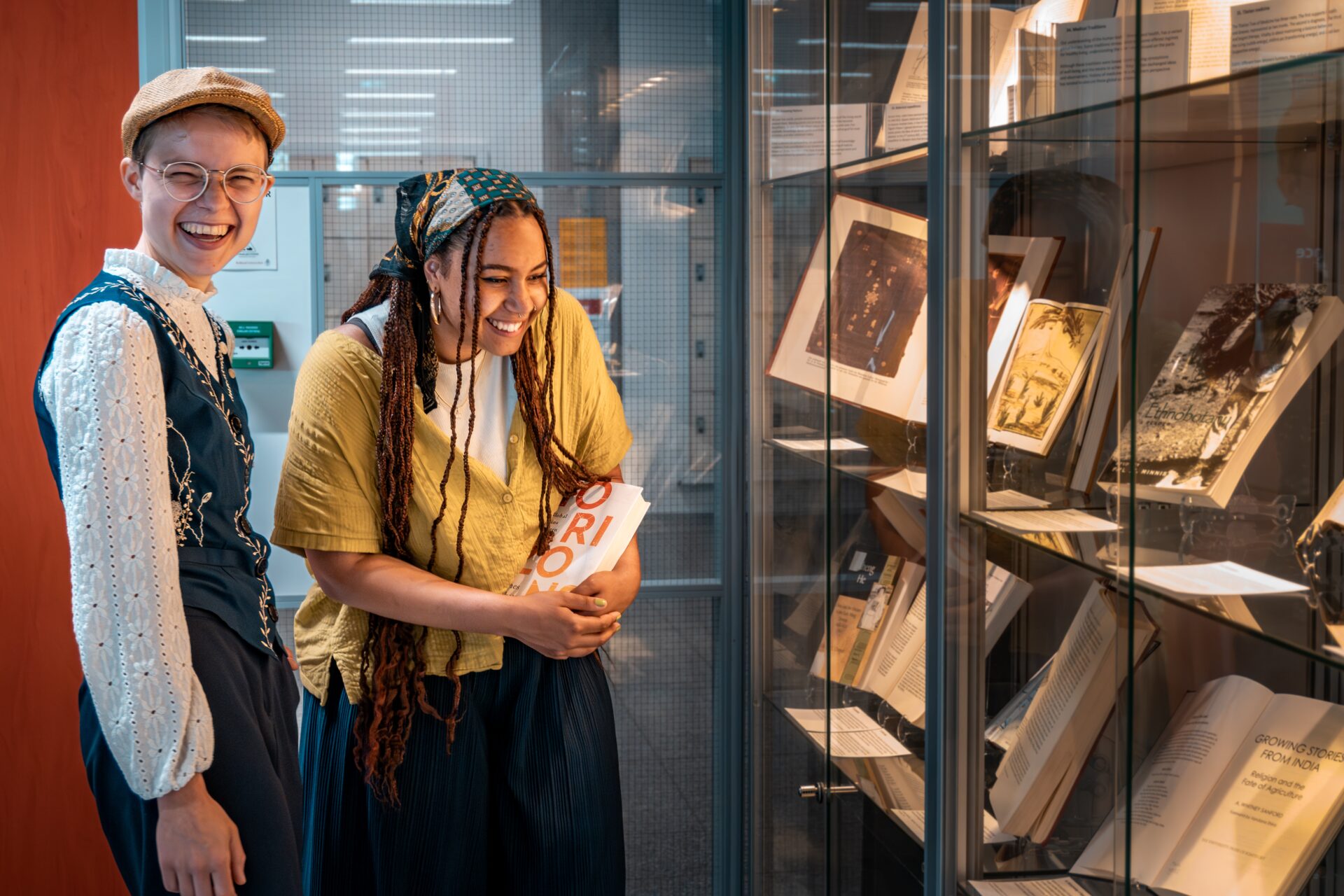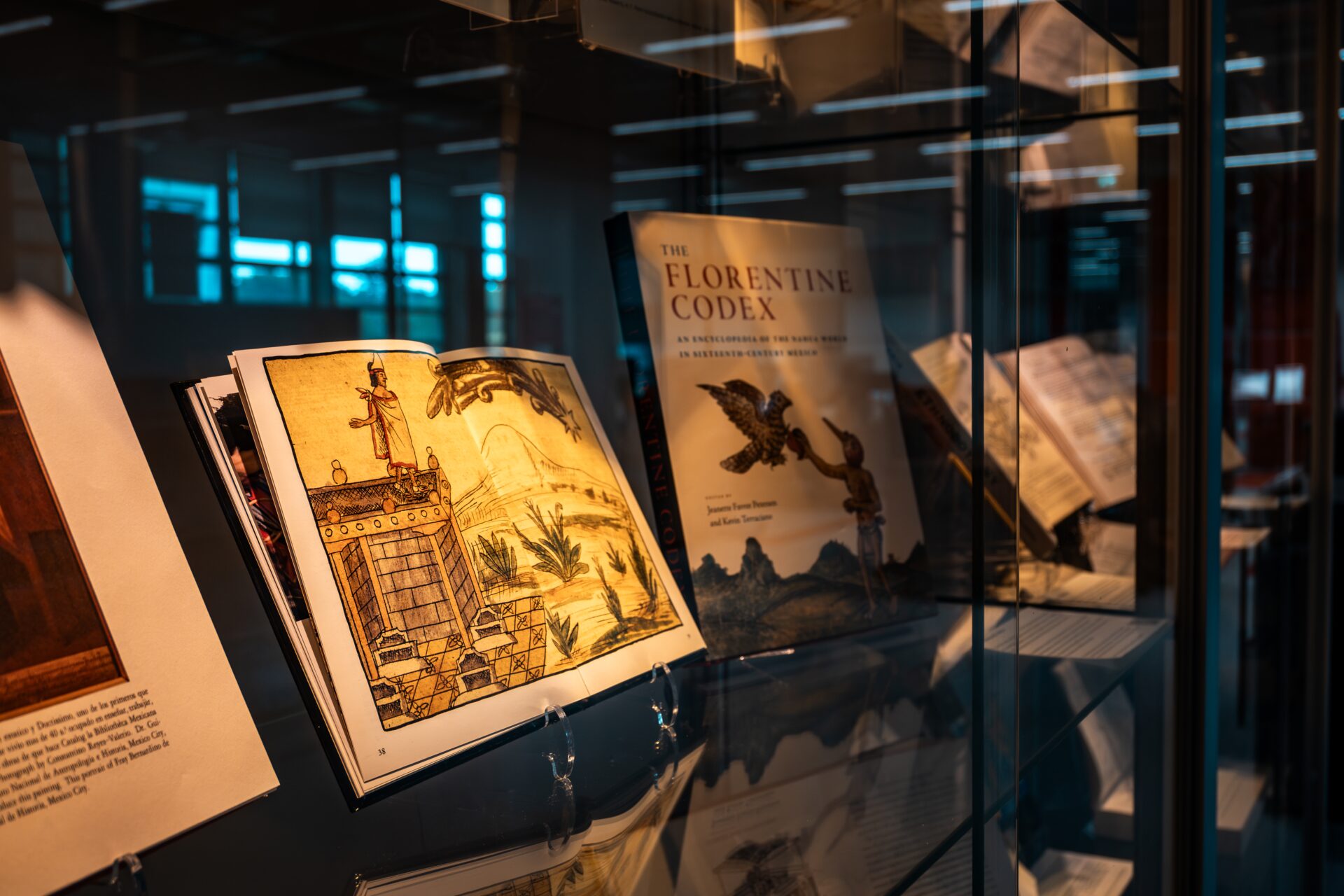Exhibition at Huygens building sheds light on non-Western roots of science
-
 Tiegan Wilkinson en Manon Lambooij. Foto: Diede van der Vleuten
Tiegan Wilkinson en Manon Lambooij. Foto: Diede van der Vleuten
Students Manon Lambooij and Tiegan Wilkinson are back with a new exhibition in the library of the Huygens building. With their exhibition Global Knowledge Traditions, they shed light on the rich and diverse contribution of non-Western traditions to science.
In the corner of the Library of Science, the library in the Huygens building, are two display cabinets with about fifty books and objects. These show how Islamic astronomers and African agronomists, among others, shaped the world of science. Old world maps, a Chinese compass, and an abacus lie amongst the objects. Together they illustrate a rich exchange between cultures and contributions to scientific breakthroughs.
With the exhibition, named Global Knowledge Traditions, the students – Manon Lambooij (History and Philosophy) and Tiegan Wilkinson (Biology) – want to emphasize why it’s important to acknowledge and appreciate non-Western roots of science. ‘Western science offers one approach to knowledge, but it’s not the only one. Sometimes people act as if Western science is the only truth, while scientific discoveries also arise where you don’t expect them.’
Lack of Books
During the selection of the books, Manon discovered that there are a lot of gaps in the knowledge at university. ‘For example, the library has few books on African science. That says enough.’ She believes this lack of sources reflects a broader historical neglect of non-Western contributions to science.
The exhibition follows an earlier exposition on female scientists, which has a clear overlap with the current subject, according to Tiegan. ‘Both women and indigenous cultures are often considered irrelevant in science, despite both groups having provided essential work.’
Manon provides an example: ‘Some instruments that came into use in the West in the 15th century, had already been developed much earlier in other parts of the world. And still, the West is often credited with their invention.’ However, the students do see some progress. ‘More and more people realise how important it is to tell these stories.’

Both students had their work cut out for them when putting together the exhibition. ‘Non-Western modes of thinking are too broad to put under a single label. The difference between ‘Western’ and ‘non-Western’ is man-made. We tend to forget that ‘non-Western’ encompasses the rest of the world.’ The students emphasize the importance of recognising the value of scientific traditions worldwide. ‘By doing so, we can learn more about science itself, but also how we approach it and value it.’
Powerless
And yet, that lack of recognition for non-Western traditions is more due to powerlessness than a lack of willingness, according to the students. After all, it takes a lot of time and money to look beyond Western science. Sometimes we simply do not have the means to explore different perspectives.
Manon and Tiegan hope to contribute through their exposition. They hope people will come to the exhibition with questions and an open mind. ‘It’s important to broaden your perspective and to learn from unfamiliar traditions’, according to Tiegan.
Manon and Tiegan’s exhibition can be seen in the Library of Science until November 1st.
Translated by Stella Kuipers & Jasper Pesch.




